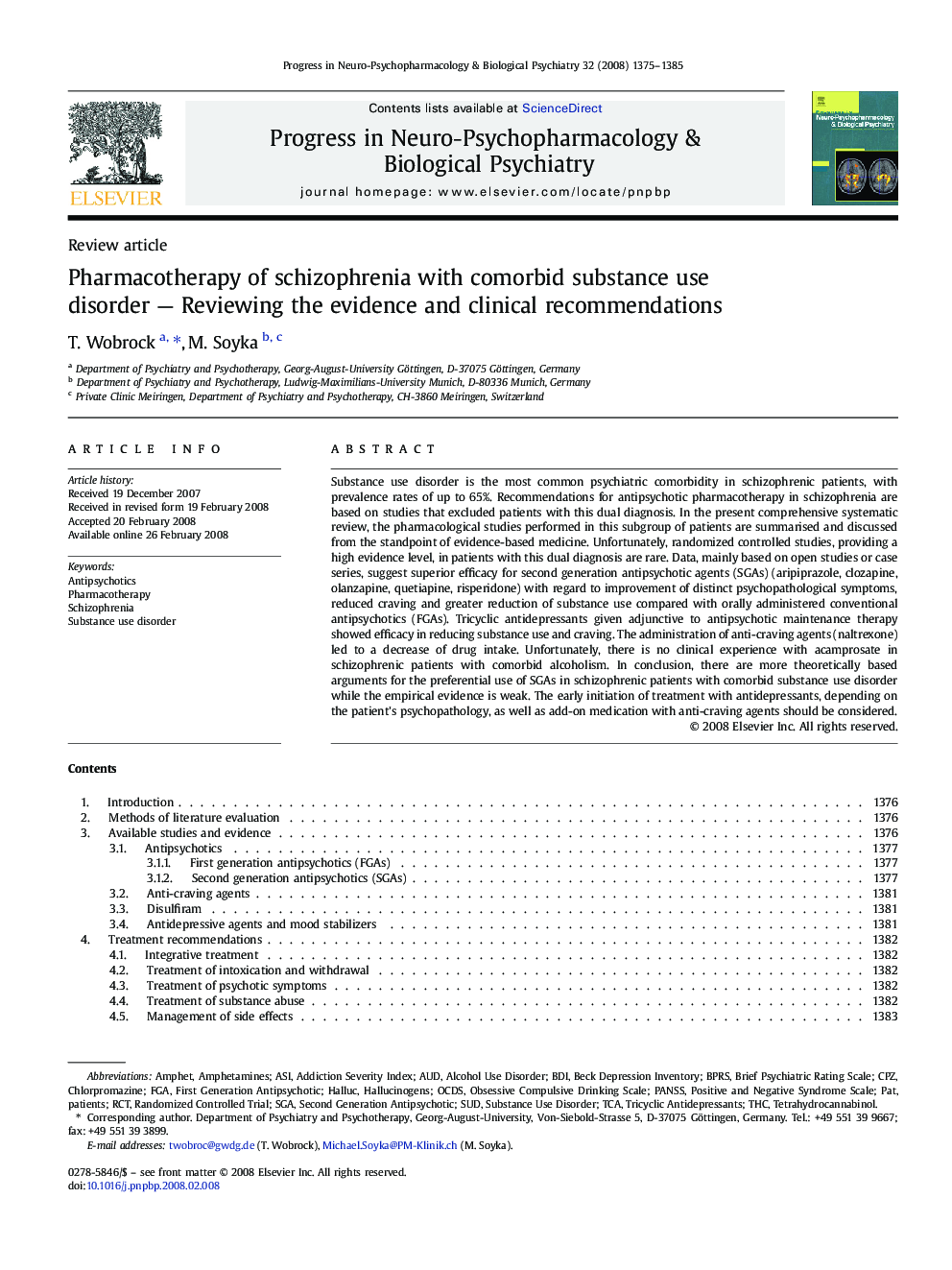| Article ID | Journal | Published Year | Pages | File Type |
|---|---|---|---|---|
| 2565602 | Progress in Neuro-Psychopharmacology and Biological Psychiatry | 2008 | 11 Pages |
Substance use disorder is the most common psychiatric comorbidity in schizophrenic patients, with prevalence rates of up to 65%. Recommendations for antipsychotic pharmacotherapy in schizophrenia are based on studies that excluded patients with this dual diagnosis. In the present comprehensive systematic review, the pharmacological studies performed in this subgroup of patients are summarised and discussed from the standpoint of evidence-based medicine. Unfortunately, randomized controlled studies, providing a high evidence level, in patients with this dual diagnosis are rare. Data, mainly based on open studies or case series, suggest superior efficacy for second generation antipsychotic agents (SGAs) (aripiprazole, clozapine, olanzapine, quetiapine, risperidone) with regard to improvement of distinct psychopathological symptoms, reduced craving and greater reduction of substance use compared with orally administered conventional antipsychotics (FGAs). Tricyclic antidepressants given adjunctive to antipsychotic maintenance therapy showed efficacy in reducing substance use and craving. The administration of anti-craving agents (naltrexone) led to a decrease of drug intake. Unfortunately, there is no clinical experience with acamprosate in schizophrenic patients with comorbid alcoholism. In conclusion, there are more theoretically based arguments for the preferential use of SGAs in schizophrenic patients with comorbid substance use disorder while the empirical evidence is weak. The early initiation of treatment with antidepressants, depending on the patient's psychopathology, as well as add-on medication with anti-craving agents should be considered.
